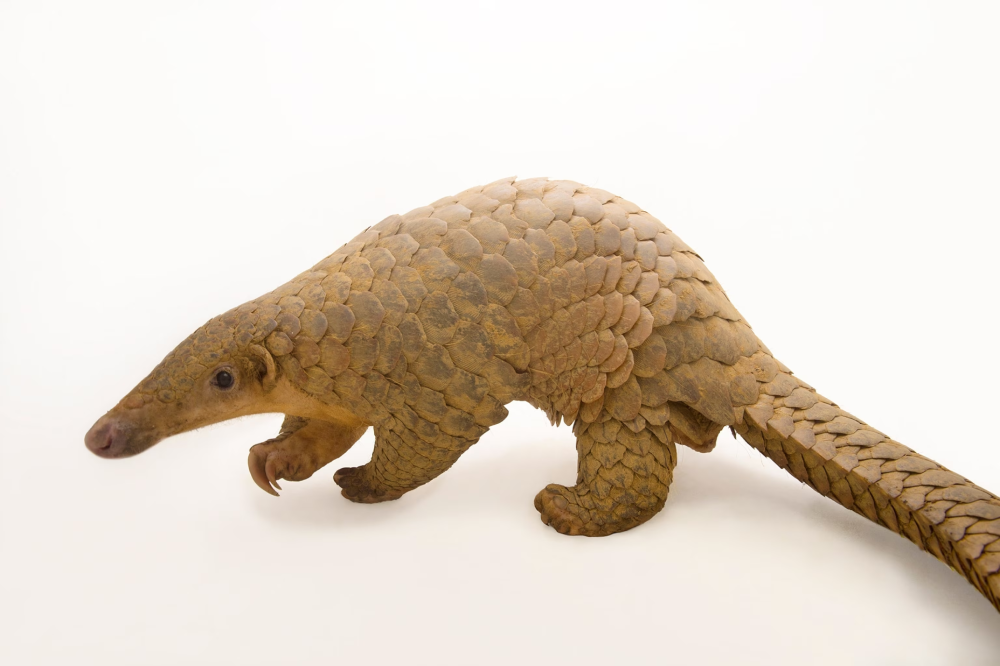In the heart of Southeast Asia’s dense forests lurks a creature that seems to have emerged from the depths of mythology—the Sunda Pangolin (Manis javanica). This elusive and enchanting mammal is the only scaled mammal on Earth. That makes it not only biologically fascinating but also culturally significant in many regions. However, despite its mystical allure and ecological importance, the Sunda Pangolin faces an existential threat from human activities. These treats push it toward the brink of extinction.
Introduction to the Sunda Pangolin*
The Sunda Pangolin is one of eight species of pangolin found worldwide, with four species located in Africa and four in Asia. Among its Asian relatives, the Sunda Pangolin is the only one found in Southeast Asia, inhabiting a range that spans from Myanmar and Thailand to Malaysia, Singapore, Indonesia, and the Philippines. Known for its distinctive overlapping scales, prehensile tail, and long, sticky tongue, the Sunda Pangolin is a master of adaptation to its forest habitat.

The Ecology and Behavior of Sunda Pangolins
Sunda Pangolins are primarily nocturnal and solitary creatures, spending their nights foraging for ants and termites using their powerful claws and specialized tongues. They are excellent climbers and are often found in trees, though they also navigate the forest floor with ease. Despite their formidable appearance, pangolins are gentle creatures, relying on their scales for protection against predators rather than aggression.
Their diet consists almost entirely of ants and termites, which they locate using their keen sense of smell. They are crucial for controlling insect populations, playing a vital role in maintaining the ecological balance of their habitats. Pangolins also serve as indicators of ecosystem health, as their presence is often indicative of intact forest ecosystems.
Cultural Significance
Throughout history, pangolins have held a significant place in the folklore and traditional medicine. In some regions, pangolin scales are believed to possess mystical properties, and their meat is considered a delicacy. Unfortunately, these beliefs have contributed to the illegal wildlife trade, driving pangolin populations to the brink of extinction.
Threats to the Sunda Pangolin
Despite their ecological importance and protected status in many countries, Sunda Pangolins face numerous threats that jeopardize their survival. The primary threat is poaching for their scales. Scales are highly prized in traditional Chinese medicine for their supposed medicinal properties. Despite international bans on pangolin trade, illegal trafficking continues to flourish, driven by demand from East Asia.
Habitat loss due to deforestation, agriculture, and urbanization is another significant threat to Sunda Pangolins. As forests are cleared for human activities, pangolins lose their natural habitat and access to food sources, forcing them into conflict with humans and increasing their vulnerability to poaching.
Conservation Efforts
Efforts to conserve Sunda Pangolins are underway, but they face numerous challenges. Conservation organizations and government agencies are working to combat poaching and trafficking through law enforcement efforts, public awareness campaigns, and international cooperation. Efforts to protect and restore pangolin habitats are also crucial for their long-term survival.
Additionally, research into pangolin ecology, behavior, and genetics is essential for developing effective conservation strategies. Captive breeding programs are being established to bolster pangolin populations and provide individuals for reintroduction into the wild.
Conclusion
The Sunda Pangolin is a remarkable creature with a unique ecological niche and cultural significance. However, it is facing an uncertain future due to habitat loss and illegal trade. Urgent action is needed to protect this species and ensure its survival for future generations.
Through concerted conservation efforts, we can safeguard the Sunda Pangolin and the fragile ecosystems it inhabits. By addressing the root causes of pangolin decline, enforcing laws against poaching and trafficking, and promoting sustainable development practices, we can secure a brighter future for these extraordinary animals. Only through collaboration and dedication can we prevent the Sunda Pangolin from disappearing forever and preserve the rich biodiversity of our planet.









